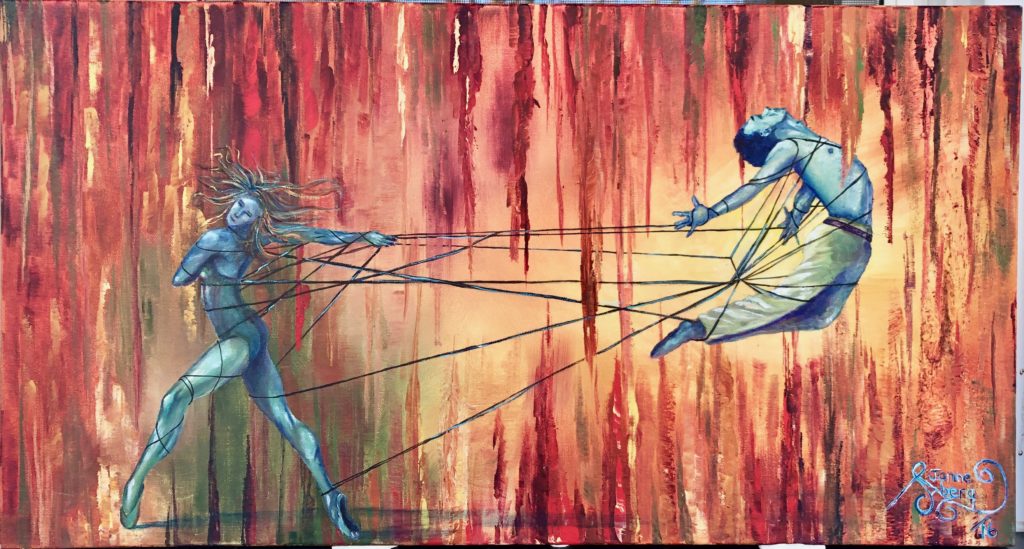By Maria Koulourioti,
A lot of people might have felt uneasy around their friends’ parents. At first glance, they seem just like ordinary people and they act like it, too. Yet, when it comes to their relationship with their child, something feels off. Unconsciously, they have developed a specific dynamic that is alienated from the base and ideals of parental governance. Thus, they are not treating their child as a kid; but rather as a romantic partner. Emotional incest, also known among psychologists as convert incest, best describes this dynamic. Despite the given term, it does not involve any kind of physical or sexual abuse, but inappropriate emotional closeness, which, unlike violence, can happen unconsciously. There are various types of emotional incest and the list of causes and patterns is as long as ambiguous since it is not recognized as a mental illness or a disorder, but an unfitting behavior.
People who have endured emotional incest don’t always fit the stereotype of a dysfunctional family. These people could describe their parent as their best friend, but their mannerism and behavior around their guardians’ changes. They could become visibly uncomfortable with their parent’s comments, teasing, or even their presence. On the one hand, a close and honest relationship between a parent and a child is comforting, reassuring, and helpful for sharing and ameliorating their life experiences. On the other extreme side of this spectrum, it is not uncommon when the parent depends on the child as a surrogate partner. How is this proved?

First of all, emotional incest is a multifactored phenomenon and can occur for multiple reasons. Social and economic factors always hold a vital role in a household’s stability. Struggling with money is an issue that disrupts the mental health of families, resulting in anxiety and emotional instability. Secondly, a fractured family dynamic, such as the absent parent, conflicts that end with toxic divorces, death, or chronic illness always create a rupture in the relationship, messing up the dos and don’ts of parenting styles. Last but not least, the cultural aspect, when one parent is too obsessive over their child’s personal life, and translating personal issues into “strict morals”.
The most prominent form of emotional incest is blurred boundaries. The underage child is no longer a child; they take on numerous roles to support their parent’s emotional needs. For instance, they could be their therapist, marriage counselor, life coach, and financial advisor. There is no issue with being honest and discussing the good and the ugly inside a familiar environment. Nevertheless, never is it a child’s responsibility to nurture their guardians’ fears, concerns, and insecurities. Also, children ought to grow and develop emotionally without carrying their parents’ emotional burdens.
It is not appropriate for an adult to turn to a child or teenager (even if they seem very mature for their young age) to talk about problems in their own life. Kids should also not be the target of sexual comments, damaging the way they view their future relationships. When reached adulthood, these parents who control and monitor their children’s relationships often become envious of their spouses, since they fear being left behind, especially when they believe that they cannot save their marriage, or they purposely stay out of commitment so they can “focus” on their adult children.
And a parallel to the big screen, a great example of emotion is the depiction of Nina’s relationship with her mother Erica in the movie Black Swan. The viewer is uncomfortable witnessing Erica’s behavior. She rubs Nina’s back, as one would an infant; she works to preserve the childish décor of Nina’s bedroom, a room filled with stuffed animals usually cherished by young children. Nina’s birthday celebration is about Erica, celebrating the occasion as Erica envisioned, and not as Nina desires. In the end, her whole behavior revolves around her not completing her dream because of her daughter, who is constantly emotionally manipulating, leaving an infantile and sexual undertone to underline her attempts to keep her sheltered and under her control.

Moreover, when we are referring to the dynamic of an entire family and not just one parent and child, the used term is enmeshment. On the surface, this closeness appears positive, even beneficial. However, family cohesion or healthy closeness can become quite confining. Like emotional incest, enmeshment involves few boundaries or heavily blurred boundaries, within the family relationship. It often keeps family members from establishing their own identities and recognizing and meeting their own individual needs.
Consequently, children who have endured from an early age emotional incest from their parents might have difficulties with setting boundaries, since their unconsciously try to please their parents and converses into a chronic people-pleasing behavior. That way, they are usually unable to liberate themselves from toxic relationships and also unable to detect the source of their emotional distress.
Sharing your thoughts and feelings with a parent, when the parent sets appropriate boundaries, is not emotional incest. The difference is that covert incest creates a parent’s unhealthy emotional dependence upon the child. It is important to recognize these patterns to ameliorate and strengthen the parental relationship via therapy. Honesty and communication will bring clarity and help recognize the problem, otherwise, boundaries must be set for the best of both parties. As always, the hardest step to take is the first, and that is, in our case, realization.




